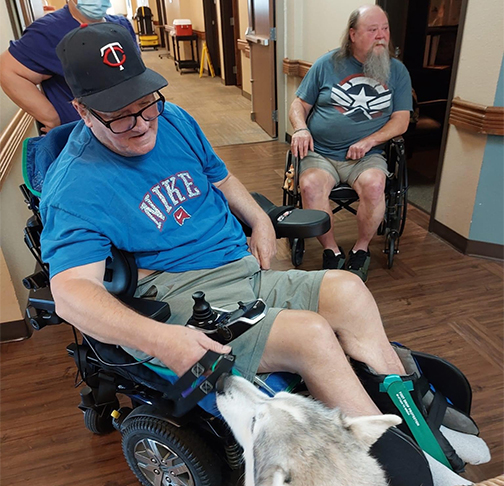
Common symptoms that occur in the early stages of dementia

As people get older, they’re likely to notice changes in the way their brain works — especially what they are able to remember. The symptoms that occur in the early stages of dementia are similar to normal, age-related changes but with a few differences. These differences can help you know if you should be concerned about Alzheimer’s or dementia.
Here are ten early signs of Alzheimer’s and other types of dementia.
- Memory loss
People with dementia will often immediately forget a conversation they just had or the details of an event that just happened. This looks different from being forgetful or absentminded, which is normal when performing tasks that are automatic or require little brain power.
For example, it’s easy for someone to forget where they put their car keys when they’ve been unloading groceries, since they’re more focused on the groceries. It is very different when someone has a full conversation and then seconds later has no recollection of it.
- Challenges with planning or focusing
A person with dementia may become easily confused when trying to make plans. They may also struggle to perform or stay focused on certain tasks. For example, it could be a warning sign if someone has difficulty managing bills or balancing a checkbook.
- Difficulty doing familiar things at home or at work
Tasks that were once performed automatically may seem challenging. For example, someone with dementia may forget how to drive to a place that they drive to every day. Or they may no longer understand the rules to a game that they’ve played many times.
- Not knowing where you are
People with dementia may forget where they are or how they got there.
- Confusion about time
Dementia can also cause a person to not understand how much time has gone by or what year or season it is.
- New problems with writing or speaking
This can show up in many different ways. Someone with dementia may forget the names of common items. Or you may notice they have a tendency to stop mid-sentence or repeat themselves when speaking. These pauses and word-finding difficulties can also interrupt their writing.
- Misplacing things
We all lose or misplace things from time to time. When someone has dementia, they lose things more frequently and also struggle with retracing their steps to help locate what’s missing.
- Poor judgment
Someone with dementia may seem to be more disinhibited or lack judgment in a way that is not typical of their past behavior. For example, they may overspend or take financial risks when they otherwise wouldn’t have.
- Withdrawing
People with dementia tend to withdraw from social activities, sports, and other hobbies. This can also apply to work projects.
- Changes in mood
Dementia may cause someone to become easily upset or unusually sad. People may experience frustration, confusion, or suspicion even when they’re around friends or in a familiar setting.
These symptoms are more likely to be dementia related if there are several happening consistently and if they seem to be worsening or becoming more frequent.
- by Marian Evangeline

Leslie Williams
leslie@seniorcarescout.com
832-458-6139


